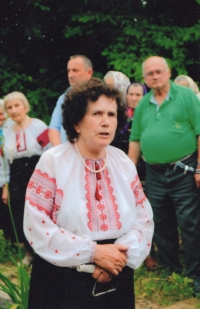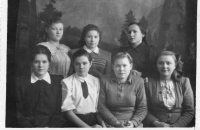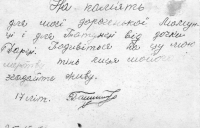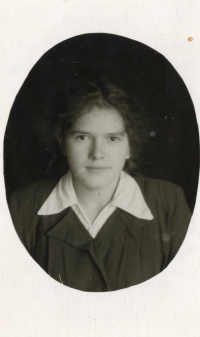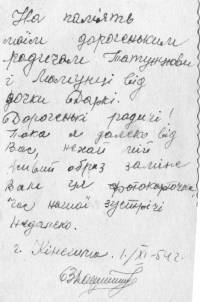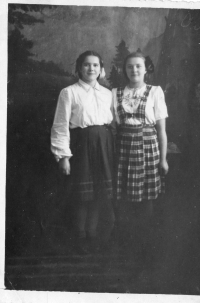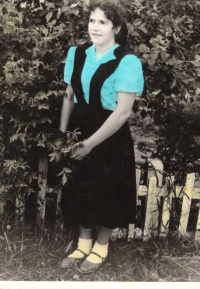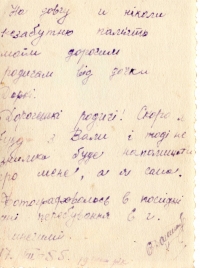Arrested during physical science class, grassed up by her teacher

Download image
Dariya Hermak, from the house of Zamorylo, was born on December 11th, 1936, in the village of Radokhyntsi, Mostysk district, Lviv region (former Drohobych region). She was a liaison of the Ukrainian Insurgent Army for ten years. In 1950, her brother, Petro Zamorylo, who was an insurgent, was convicted. After a teacher settled in the Zamorylo family home, it became more difficult to pass information to the forest. The teacher betrayed Dariya and the other liaison girls. On December 5, 1951, during a physical science lesson, she was detained together with Ivanka and Anelia Tyrus. After interrogation, Dariya and Ivanka were arrested and taken to a prison in Drohobych. She was later transferred to Sambir. The court convicted the girl under Art. 54-10 part 2 of the Criminal Code of the USSR (anti-Soviet propaganda and agitation) for 10 years in prison. She served her sentence in children’s labor colonies in Tutaev (Yaroslavl region, RSFSR) and Kineshma (Ivanovo region, RSFSR). She was relieved from there in 1954. After returning, she studied for two courses in Ivan Franko Lviv State University and later at the College of Light Industry. She worked at a garment factory. She organized the creation of a memorial place where UPA fighters are buried in Radokhontsi.

